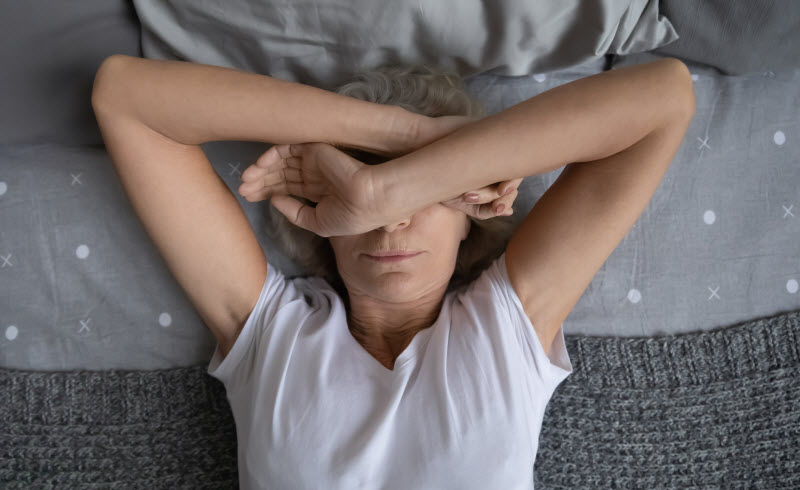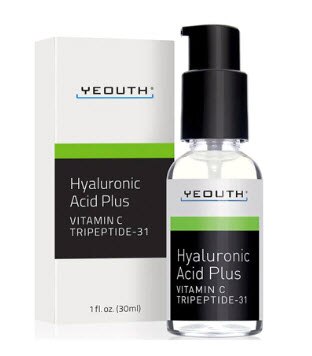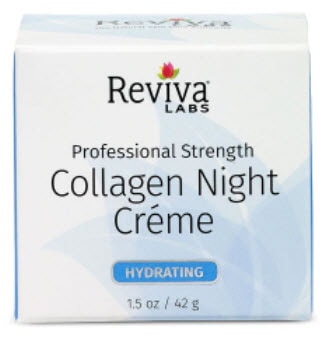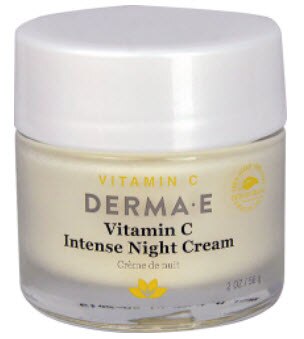When you don’t sleep well, you’re not only compromising your health and immunity, but you may also be putting your skin at risk for issues such as dryness, redness, acne and a dull complexion.
“Sleep deprivation decreases the barrier function of the skin so there is more water loss and increased dryness, and it can increase the stress hormone, cortisol,” says Dr. Debra Jaliman, board-certified dermatologist, assistant professor of dermatology at Icahn School of Medicine at Mount Sinai and author of the book, “Skin Rules: Trade Secrets from a Top New York Dermatologist.”
Cortisol increases the breakdown of collagen and elastic tissue in the skin, so it prematurely ages our skin and reduces thickness and durability in skin’s texture. Going a night with little to no sleep can also decrease production of growth hormone, which helps to maintain the process of skin’s tissue repair, as well.
Skin repairs itself as we sleep to maintain its youthful appearance. If you don’t sleep well at night, you may find yourself looking “older” in the morning. Getting that 7 to 8 hours of sleep is important for healthy skin, and there’s truth behind the concept of beauty sleep.
What happens to skin while you sleep
At night, skin is its most permeable, meaning it’s more susceptible to absorbing applied products. Nighttime is a great opportunity to use moisturizers, serums and medications, as penetration for products is at its peak overnight.
“Blood flow to the skin increases later in the day and in the evening, and so healthy skin cells have an opportunity to repair and proliferate with their maximal activity in the middle of the night,” says Erum N. Ilyas, MD, MBE, FAAD, board-certified dermatologist and founder and CEO of AmberNoon.
Waking up with dark circles under our eyes is another common issue that occurs when we don’t get enough sleep. “The overall ‘sunken’ look of dark under-eye circles, ‘hollowing’ of the cheeks, and dry skin can accompany this, and most of this is a result of dehydration, which increases due to lack of sleep and can exacerbate feelings of fatigue and skin woes,” says Ilyas.
One study showed that people who do not sleep long enough do not release the same amount of vasopressin, a hormone responsible for controlling water balance, as those getting a good night’s rest.
The indirect way fatigue can affect skin is through our nervous system. “There is evidence that those who have chronic fatigue syndrome, for example, have abnormal responses to temperature, like shivering, sweating, feeling flush, and can also have changes in the appearance of skin hue, as a result,” says Ilyas.
What happens the morning after a night with little sleep
If you’re sleep deprived, even for just one night, you are more likely to wake up with droopy eyelids, redder eyes, swollen/puffy eyes, darker circles under the eyes, paler skin and greater risk of developing wrinkles and fine lines (though the latter is associated with the long-term effects of sleep deprivation).
Darkness under the eyes is especially common. “When you don’t get enough sleep it causes blood vessels under the eyes to dilate, which causes darkness, where you can see the vessels underneath the thin eyelid’s skin more visibility, and there’s more puffiness too,” says Jailman.
Sticking with a good skincare regimen is the best way to protect skin long term, and to avoid unpleasant effects on skin’s health and appearance, when sleep deprivation is a regular occurrence in your life.
“I recommend to my patients to sleep 7 to 8 hours a night and to shut off their electronic devices at least an hour before they want to go to sleep, as well as to take sublingual melatonin if they have difficulty sleeping and to use satin pillowcases, as opposed to cotton, so the skin slides against the pillowcase and doesn’t crunch, which could lead to sleep lines,” says Jailman.
Applying an eye cream with a high concentration of antioxidants and peptides can be helpful to smooth the skin around the eye area and minimize wrinkles and dark circles, as part of a nightly routine but as an essential for nights when you won’t be getting enough sleep or are pulling an all-nighter.
Minimizing side effects & improving skin’s appearance the next morning
If you know you’re going to be getting insufficient sleep, or if you’re struggling to fall asleep and know during the night that you won’t be refreshed in the morning, apply some topical products to help minimize sleep deprivation symptoms as best as possible.
Using an anti-aging cream at night is ideal, as the skin is best able to absorb it and repair damaged tissue. This ideally should be part of your nightly skincare routine, but it’s especially important on nights when you know you won’t be sleeping as many hours as you should be.
For an immediate fix in the morning, apply a cold spoon or chilled cucumber slices to your under eye area. “A cold spoon or cucumber slices do work, since the coolness helps by de-puffing the surrounding eye area,” Jailman says.
“Cucumbers contain antioxidants and also promote hydration due to their high water content, plus they contain both vitamins A and C, which promote collagen production,” Jailman explains. Cucumbers are cooling to the skin and reduce dark circles and puffiness, so you may also use it in an under-eye cream, as well.
You can also place a steeped and cooled tea bag over your eyes for a few minutes, as it may decrease puffiness and help you to appear more awake. Side note: be sure the tea bags contain caffeine because caffeine constricts blood vessels and decreases puffiness. Decaffeinated tea or topicals won’t have the same skin-enhancing benefits. You can also try a cream with green coffee beans.
Best nighttime topicals for improved skin in the morning
Argan oil is a cold-pressed oil that’s rich in triglycerides that enter the superficial layers of the epidermis to hydrate skin as well as activate a hormone known to trigger production of fat or natural lipids to keep skin healthy and moist. Many moisturizers, toners and serums contain argan oil, as well as hydrating hyaluronic acid, vitamin E and lactic acid.
Hyaluronic acid is a naturally occurring substance in the skin that can also attract and retain moisture and help make skin appear less wrinkled. Using an under-eye cream with hyaluronic acid also can help reduce puffiness or swelling. Vitamin E protects cells from damage when applied topically, while also boosting hydration to prevent dryness and redness.
Finally, lactic acid, found in many moisturizers, stimulates collagen to promote skin’s youthfulness. If you apply face cream or a mask at night, even if you’ll be awake for hours, it can help skin look more refreshed in the morning, encouraging a more youthful “glow,” despite poor sleep.



